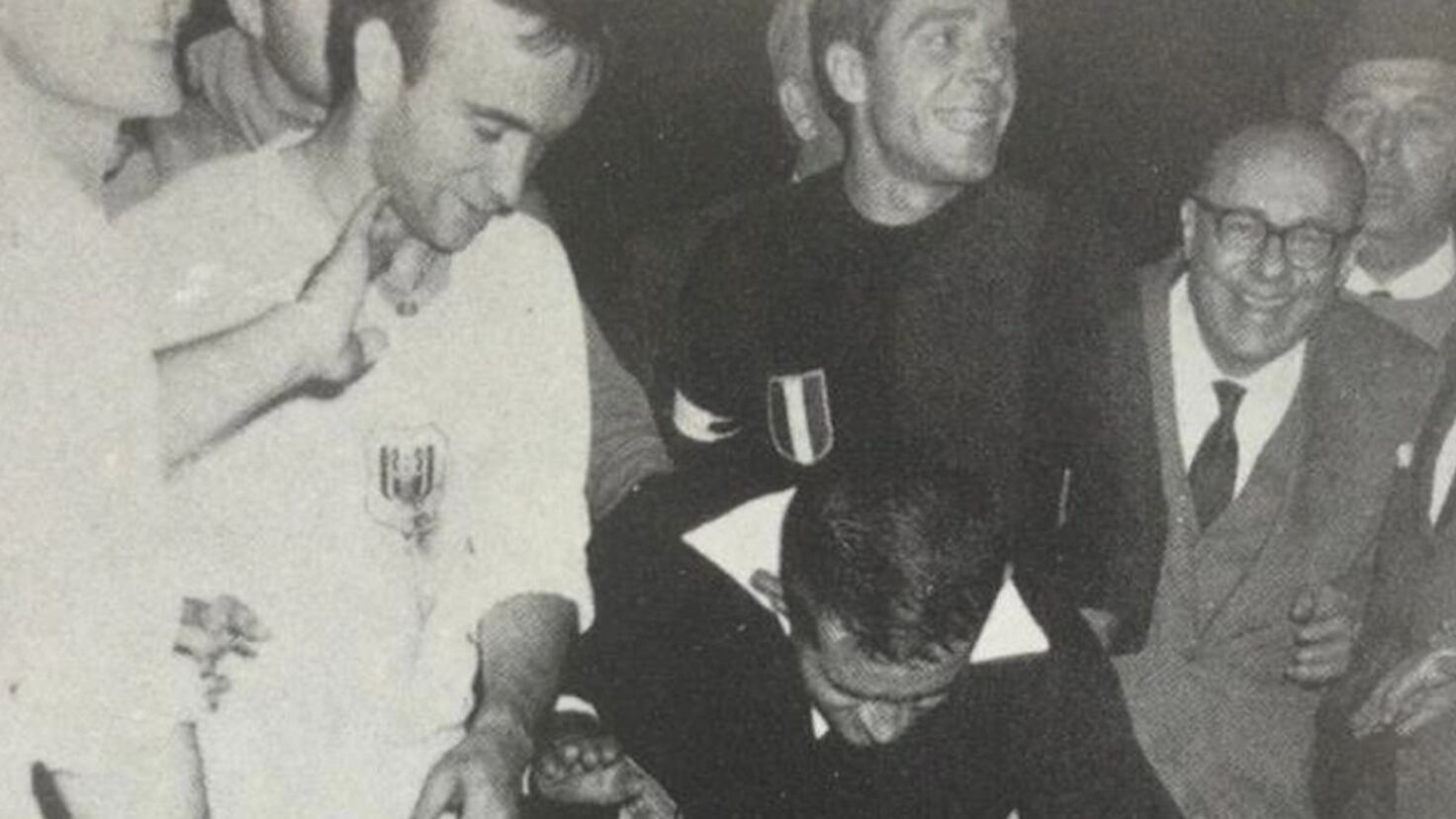Until the end of the sixties, playoff matches were played when the two teams had scored the same number of goals in a tie. A hassle, because the date and field had to be agreed upon. If the tiebreaker did not decide, an overtime or two was played, or even 10-minute overtimes until someone scored. And if not, coin toss, a procedure that caused discomfort. In 1964 a controversial situation arose: a Bologna-Anderlecht European Cup tie required a tiebreaker, which was played at the Camp Nou; The 0-0 remained after two overtimes and the referee, the Navarrese Zariquiegui, tossed the coin into the air in the presence of the two captains… and it fell on its edge, wedged in the grass. He had to repeat and Anderlecht passed.
For the 65-66 Cup Winners’ Cup, UEFA decided on a trial basis that in the event of a goal tie in the tie, those scored away from home would weigh more. In addition to avoiding tiebreakers, it was about encouraging the visitor to attack. “A goal away from home is worth double,” we fans simplified, but it wasn’t exactly like that. Losing away 3-2 after drawing 0-0 at home was not a pass. Away goals only had preferential value when there was a tie between the two matches.
In 65-66 there was no case of application in the Cup Winners’ Cup. In the same year, the Fairs Cup also resolved two qualifying rounds: this is how Milan and Barça passed against Strasbourg and Hannover. In the 66-67 Cup Winners’ Cup there was the first case in a tie between Chemie Leipzig and Standard Liege: 2-1 in Leipzig and 1-0 in Liege, 2-2, so Standard passed.
There was some agreement with the formula, and in ’67-68 it was decided to move to the European Cup, in principle only up to the quarterfinals. That first season we didn’t have to resort to it. The debut would come in ’68-69 and in Spain it was very popular as it meant the elimination of Madrid in the round of 16 against Rapid Vienna. It was Madrid ye-yأ©, champion in ’66 and which was among the favorites. He traveled to Vienna without Amancio or Gento and lost 1-0.
At the Bernabأ©u, on a cold and uncomfortable night and with only two thirds of an inning, Velأ،zquez opened the scoring in the 43rd minute and gave way to optimism, but in the 48th minute Bjerregaard (Danish, figure of Rapid import) scored from the right, with hardly any angle. Betancort was waiting for the center, he scrambled to stop the ball and helped put it in. Now two goals were needed. The 2-1, scored by Pirri, was delayed until the 81st minute. There was no more and Madrid was left out, amidst comments about the new formula. The debate even reached the Atlético fans, who remembered that 10 years ago Atlético would have eliminated Madrid in the semifinals, instead of losing in the tiebreaker in Zaragoza.
But the formula was in place and soon penalties would be added to resolve whether after extra time (with which the second game was extended if the matter was not resolved) it had not been decided. With extra time and the formula of the preferential value of away goals there were their discussions. Should they be worth more in overtime too? It was decided that yes, since that balanced the disadvantage of the player in the opposite field. It did not end up making everyone happy and it has been discussed until abolition. It is an issue that Simeone, among others, has advocated against. And that caused one of the great refereeing errors in history.
It happened in Lisbon on November 3, 1971, in a Cup Winners’ Cup tie between Sporting and Rangers. The two games ended 3-2 in favor of the local team. In extra time, Rangers scored first and then Sporting, so the match ended 4-3. Added to the first leg result, 6-6. The referee, Lauren van Ravens, gives way to the penalty shootout, which Sporting wins amid local jubilation.
But a Sunday Mail journalist explained to Rangers manager Willie Waddel that the penalties should not have been taken, as the Scottish goal in extra time also had preferential value. He had scored three goals for Lisbon to only two for Sporting in Glasgow. Van Ravens had to admit that he had made a mistake and declared the round non-existent and Glascow Rangers classified. That later, by the way, he would reach the final, against Dinamo Moscow. End of sinister memory in Barcelona. It was played at the Camp Nou and the Scottish hooligans made a big deal.









